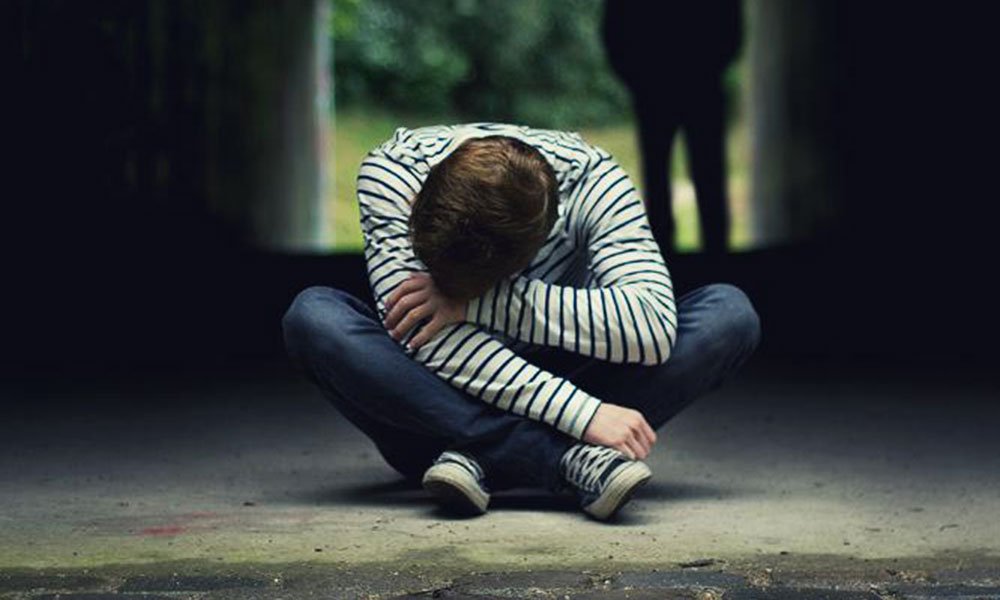If you need help processing the recent sin and betrayal of a Christian leader, this 8-part series might be for you. Each part covers a different reaction. Feel free to select the topic that seems most relevant to you from the map below.
Introduction (this post)
1. I feel so hopeless. Is Christian faithfulness impossible? (this post)
2. I'm so discouraged. What can I do?
3. I'm so heartbroken. How do I deal with this?
4. I'm so furious I can't think straight. How do I tackle this?
6. How do I protect myself from sinning like them?
7. How can I help myself heal?
8. How can I deal with my other questions?

I am weary with my sighing;
Every night I make my bed swim,
I dissolve my couch with my tears.
My eye has wasted away with grief;
It has become old because of all my adversaries.
Depart from me, all you who do iniquity,
For the LORD has heard the voice of my weeping.
The LORD has heard my supplication,
The LORD receives my prayer.
(Psalm 6:6–9)
They're dropping like flies.
Christian leaders.
Pastors.
Musicians.
People we've trusted, admired, listened to.
People who have taught us about the deep things of God.
People who have lifted our hearts to the throne room of heaven.
Rapists. Adulterers. Abusers. Liars.
How can this be?
How can they have sinned—and then covered up, and sinned some more?
Their lies have lasted for years.
Sometimes for decades.
They taint their entire ministries with the length of the coverup.
Some people look on in glee—"I always thought there was something fishy about him"—perhaps rewriting the history of their own mindsets to make the reality less painful.
Others delight, with a demonic schadenfreude, in the knowledge that they've turned out to be more godly than those giants whom others have admired.
But what is the godly response?
How do we digest the devastating news?
How do we navigate this perilous terrain and still come out with our own faith intact?
Speaking personally, I've felt disoriented, broken by the sins of others—some, people I’ve known; many, people I've never met but felt connected to in some way.
Is the Christian life, lived in faithfulness, really that hard?
Is it a miracle if anyone makes it through without major sins—not just a single strand, but many—woven through the fabric their lives?
At first, I thought I wouldn't write this post until I had some solid answers. But then I realized: perhaps shared suffering can be a type of answer.
We can let embarrassment and fear of our own answerlessness silence us. If we do, discouragement and hopelessness will continue to dog us. The betrayals will continue to pile on. The weight will only increase, and eventually the backbone of our faith might crack.
But if we admit that we don't know how to respond? If we share this pain with each other? If we ask our honest questions, unafraid that our pain might insult God? If we trust our God to be able to handle our dark questions? What happens then?
The Bible says, “But if we walk in the light, as He is in the light, we have fellowship with one another, and the blood of Jesus, His Son, purifies us from all sin.” [1] When we walk with Jesus in the light, rather than hiding away in fear, we have fellowship with Him and with each other. Shame isolates; Jesus’ light joins us together. He purifies us from the stains of sin—both our own sins, and the sins of other people. So let’s open up the curtains, unlock the windows, and let the light pour in.
Perhaps, we can find some relief. A sense of belonging. A spark of hope that will help us keep going, traversing the mud pit that threatens to suck us down.
Let’s get started.
- Is Christian faithfulness impossible?
I’ll admit that there have been times when I’ve wondered if it is. I've wondered if eventually I, too, will succumb to some awful sin, and be a source of discouragement to my brothers and sisters in Christ.
The Bible talks about our salvation as being an event in the past [2], an ongoing process in the present [3], and a future hope [4]. In the now, the Bible advises, “work out your own salvation with fear and trembling.” [5] With all of these spiritual earthquakes in the Western Christian world, I think I understand this idea a little better now than I used to.
If lifelong faithfulness is impossible and we're doomed to fail, should we even try? Maybe giving up now—before the sin—would be kinder to ourselves and everyone else.
But then an old knowledge flickers to life, carrying a reminder of deep truth bought with similarly deep suffering.
Though the Borg from Star Trek might say otherwise:

It always yields a special kind of strength, a special kind of resilience.
Sometimes resistance is active—standing up against something malignant. Sometimes resistance appears passive—like silence in the face of someone's slander directed at you—a stubbornly persistent godliness in the face of evil.
It might hurt, but resistance says: “I will not submit to destruction. You may be successful in hurting me, but I will not allow you to demolish me.”
We’re used to thinking about resistance in terms of countering Satan’s temptations. But it can mean so much more than that. Resisting can be about pushing back against despair at the sins of other people. It can be about pushing back against sins we're afraid we might commit in the future.
Whatever the type, resistance ALWAYS matters.
Here’s what my resistant streak is saying right now:
SO WHAT if faithful Christian life—spanning a whole lifetime—is impossible?
SO WHAT if faithfulness is only possible through a miracle?
We're in luck: we serve the GOD OF MIRACLES!
The Bible says: "For with God nothing will be impossible." [6]
It also says:
Trust in the Lord with all your heart
And do not lean on your own understanding.
In all your ways acknowledge Him,
And He will make your paths straight.
(Proverbs 3:5–6)
So the questions we must each ask ourselves are:
- Do I really believe this?
- Am I willing to put all my eggs in God's basket?
- If I give up now, am I depriving myself and others the privilege of seeing God's power at work in my life? (**Not by my own strength or godliness, but by His!**)
This is so much more than a pep talk. This is a reminder of the things that are true in our spiritual lives. When we’re surrounded by so much visible evil, it’s that much more important to remember that this is not the only dimension of our existence.
“For our struggle is not against flesh and blood, but against the rulers, against the powers, against the world forces of this darkness, against the spiritual forces of wickedness in the heavenly places.”
(Ephesians 6:12)
We don’t have to succumb to defeat in this spiritual battle. We can resist. We can “be strong in the Lord and in the strength of His might.” [7] This isn’t about living the Christian life in our own strength, but in His.
How do we do this? Sometimes the discouragement is so thick that it saps us of all our energy. This happened to me last week. I was so discouraged I couldn’t even pray.
That day, rather than get a ride to my ESL class, I walked. Along the way, I finally talked to God. It wasn’t officially “prayer”—it lacked the component of active listening—I wasn't asking for things or praising God, or thanking Him, or requesting guidance. I just talked to Him about meaningless things, about things I saw along my way, about birds and trees, and new shops in the community. And then I told him about how discouraged I was. About how I was afraid I’d flubbed my seminary application, and about how much I was dreading teaching ESL class because I felt like I had nothing to give my students. (I didn’t ask for help in those things; I just talked to Him about whatever came into my mind.)
It was honest and transparent. He didn’t really say anything back. (I’m not sure I would have heard Him if He had. I was too numb.) But at the end, I felt better—just a little.
Even though I hadn’t “prayed”, I hadn’t kept anything from Him, either. And somehow, that helped.
I’ve shared a first question with you, but I’ve thought of at least five more, so this will be a blog series. I hope working through these questions will be helpful to you, too. Next time, we'll talk about dealing with discouragement.
NOTES
[1] 1 John 1:7, NIV.
[2] See Ephesians 2:8.
[3] See 1 Corinthians 1:18.
[4] See 1 Peter 1:5, Romans 8:18–19.
[5] Philippians 2:12, NASB.
[6] Luke 1:37, NKJV.
[7] Ephesians 6:10, NASB.









